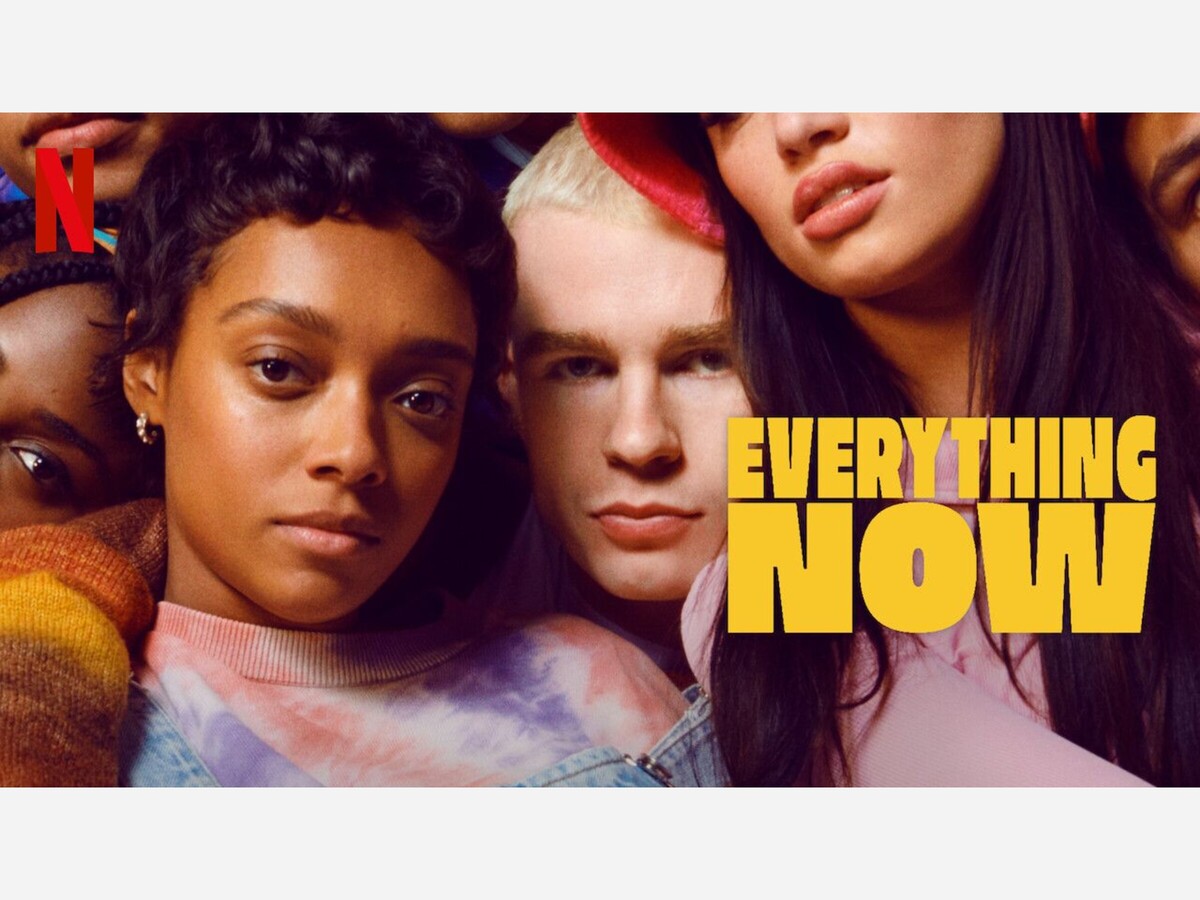Image


On October fifth, the first season of the Netflix series “Everything Now” was released. Following teenager Mia Polanco and her experiences coming back from a mental health facility, the eight-episode series is a high school drama with an emphasis on mental health issues. The series successfully balances both heavy topics and typical teenage chaos through the perspective of a diverse group of high schoolers. If you are a fan of shows like “Heartstopper” and “Sex Education,” this series should definitely be next on your watch list.
Throughout the series, Mia Polanco returns from a hospital after seven months of recovery from an eating disorder. Upon returning to her life as a high school student, she realizes that during the months she was away, she missed a lot more than she anticipated. To catch up, she makes a bucket list, with a slight twist, of things that she wants to do to be “normal.” However, friendship drama, romantic relationships, and her continued struggle with an eating disorder take her on a journey of discovery that allow her to realize that maybe “normal” means something different than she initially thought.
An important aspect to note about this series is its representation. Not only does the series discuss eating disorders and work to destigmatize mental health issues, but it also represents people of different cultures, family dynamics, and identities. For example, throughout her battle with anorexia, Mia Polanco encounters obstacles as her parents separate and she explores her romantic interest in a girl at her school. Additionally, one of Mia’s closest friends, Will, has difficulty being vulnerable with his boyfriend. This is not to mention the challenges that Mia and her other friends find themselves in as romance gets in the way of friendships. These are just a few of the many communities represented throughout the series. Because of the diverse casting and relatable characters, the series is representative of realistic high school experiences and appeals to many young adult viewers.
Representation, like that incorporated into this series, allows audiences to see themselves in the media and understand that they are not alone in their struggles. “Everything Now” is just one example of a series in which representation enhances the realism and relatable nature of the media. Accurate and realistic representation destigmatizes social issues and prevents the perpetuation of inaccurate stereotypes. As diversity in media begins to match the diversity that we see in real life, the world becomes a more accepting and inclusive environment for all people. If any of this sounds appealing to you, be sure to check out “Everything Now” on Netflix.